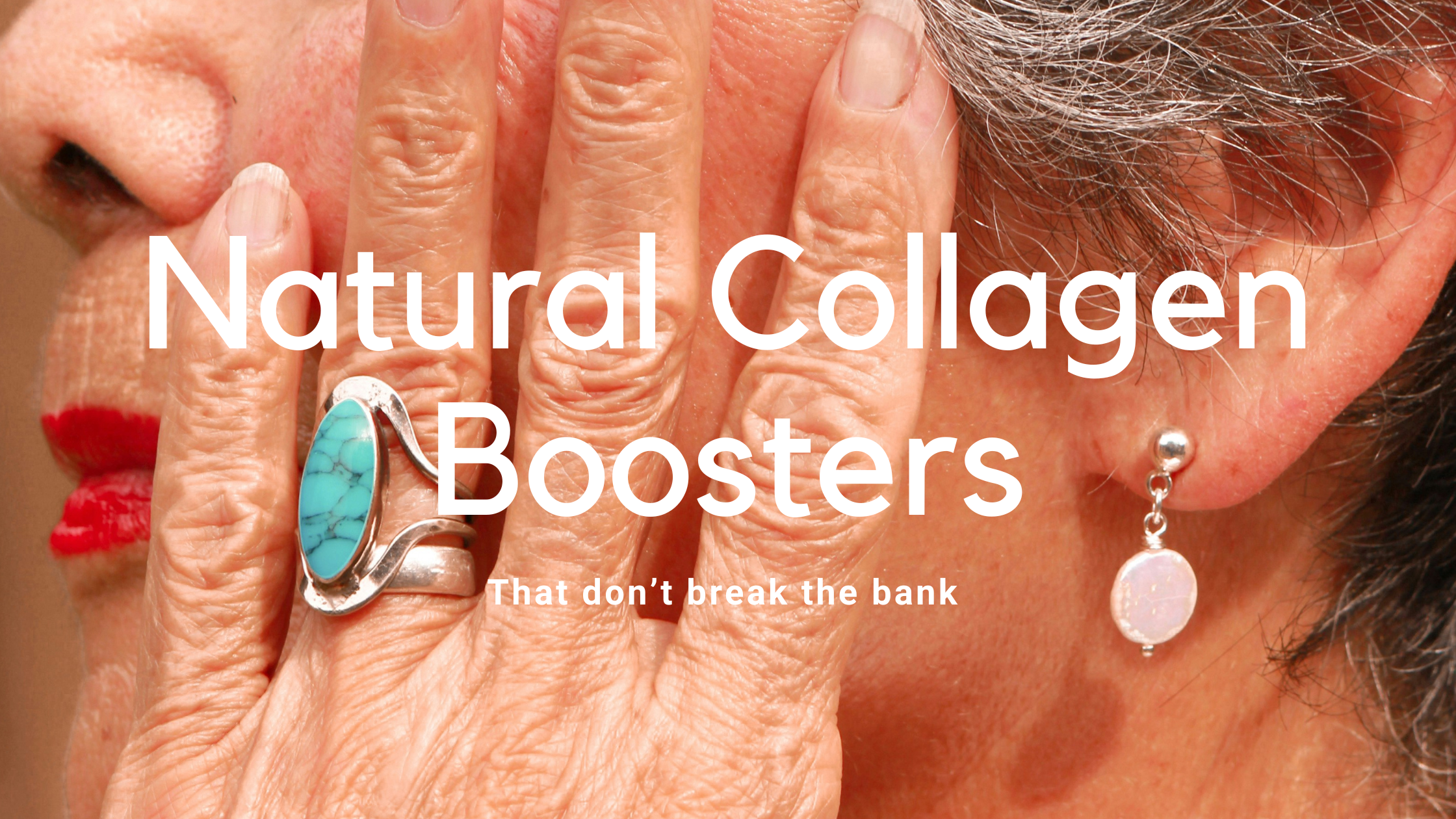As women age, one of the most visible signs of the body’s natural changes is the gradual loss of collagen, a structural protein that keeps skin firm, smooth, and supple. However, it’s not all about skin and beauty: this protein also plays a critical role in joint health. Its production begins to decline in our mid to late twenties and continues to diminish over time, particularly during and after menopause. Fortunately, there are scientifically supported, natural strategies that women can adapt to help maintain and stimulate production.
What is Collagen?
Collagen is made up of three amino acids—typically glycine, proline, and hydroxyproline—and is organized into various types based on where it functions in the body. Scientists have identified 28 types of the protein, but only a handful are commonly found in dietary supplements:
- Type I, the most abundant, is found in skin, teeth, bones, tendons, and ligaments.
- Type II comprises about 90% of cartilage collagen and supports joint health.
- Type III is located in the skin’s middle layer (dermis), muscles, and blood vessels.
- Type IV supports tissues in organs like kidneys and lungs.
- Type V is found in hair and cell surfaces.
Types I and III are most beneficial for skin, while Type II is specific to joint health. Understanding these distinctions can help guide choices in nutrition and supplementation.
1. Eat Collagen-Boosting Foods
To naturally support collagen production, focus on foods rich in the amino acids your body needs:
- Bone broth is rich in gelatin.
- Skin-on fish and chicken are natural sources.
- Egg whites contain proline, an important amino acid for collagen synthesis.
Regularly including these foods in your diet provides your body with essential building blocks to produce collagen effectively.
2. Prioritize Vitamin C Intake
Vitamin C plays a crucial role as a cofactor in collagen synthesis, helping to stabilize the protein structure and protect skin cells from oxidative stress. Women especially benefit from adequate vitamin C intake during periods of hormonal fluctuation and stress. Rich sources include:
- Citrus fruits like oranges and lemons
- Berries such as strawberries and blueberries
- Bell peppers
- Leafy greens like spinach and kale
3. Use Daily Sun Protection
Exposure to ultraviolet (UV) radiation accelerates collagen breakdown in the skin, leading to premature aging. Protect your skin by:
- Applying broad-spectrum sunscreen with SPF 30 or higher daily
- Reapplying sunscreen every two hours when outdoors
- Wearing protective hats and clothing
Sun protection is one of the most effective ways to preserve collagen and maintain youthful skin.
4. Avoid Smoking and Secondhand Smoke
Smoking damages collagen and elastin fibers, reduces blood flow to the skin, and speeds up skin aging. Quitting smoking and avoiding secondhand smoke can greatly improve skin texture and slow the loss of elasticity.
5. Stay Hydrated
Hydration supports skin elasticity and the function of collagen and other structural proteins. Women should aim to drink 8 to 10 glasses of water daily, increasing intake during pregnancy, breastfeeding, menopause, or intense physical activity.
6. Consider Supplements
Supplements are available mainly in two forms:
- Hydrolyzed (collagen peptides) is broken down into smaller peptides, making it easier for the body to absorb and use. These powders dissolve well in liquids like smoothies or coffee.
- Undenatured type II (UC-II) is derived from chicken cartilage and is less processed, targeting joint health specifically.
Research shows that supplements can improve skin hydration, elasticity, and density after consistent use for three months or more. They may also reduce joint pain and stiffness associated with osteoarthritis. A year-long study in postmenopausal women found that 5 grams daily increased bone mineral density and lowered blood pressure, suggesting broader health benefits.
While collagen supplements are not a cure-all, many women report improvements in skin smoothness and joint comfort. It is advisable to consult a healthcare professional before starting supplementation.
7. Incorporate Retinoids into Your Skincare Routine
Topical retinoids (vitamin A derivatives) have been shown to stimulate collagen production, improve skin texture, and reduce fine lines. Women with sensitive skin may begin with gentler retinol products and increase strength gradually.
8. Try Facial Massage or Gua Sha
Facial massage and tools like gua sha and jade rollers may boost circulation and relieve muscle tension, supporting skin firmness and tone. These practices are popular self-care methods that complement collagen-supportive routines.
9. Adopt a Holistic, Healthy Lifestyle
Healthy lifestyle choices profoundly influence collagen health. Women can support skin and connective tissue by:
- Eating a balanced, antioxidant-rich diet
- Engaging in regular physical activity
- Getting 7 to 9 hours of quality sleep nightly
- Managing stress through mindfulness, yoga, or relaxation techniques
Avoiding excess alcohol and managing hormonal changes, especially during menopause, also help preserve collagen integrity.
Final Thoughts
Collagen production naturally decreases with age, but women have many tools to support their body’s levels and overall connective tissue health. Combining targeted nutrition, protective skincare, supplements when appropriate, and healthy lifestyle habits offers a comprehensive approach to maintaining radiant skin and flexible joints throughout life.
For personalized guidance, consult a dermatologist or women’s health specialist who can tailor a supportive plan to your individual needs.
Source
Are Collagen Supplements Helpful for Arthritis? | Arthritis Foundation, 11 Jan. 2023, www.arthritis.org/health-wellness/treatment/complementary-therapies/supplements-and-vitamins/can-collagen-supplements-help-arthritis.
“Collagen Benefits: What You Need to Know.” WebMD, WebMD, www.webmd.com/diet/collagen-health-benefits. Accessed 10 June 2025.
professional, Cleveland Clinic medical. “Collagen: What It Is, Types, Function & Benefits.” Cleveland Clinic, 6 June 2025, my.clevelandclinic.org/health/articles/23089-collagen.


